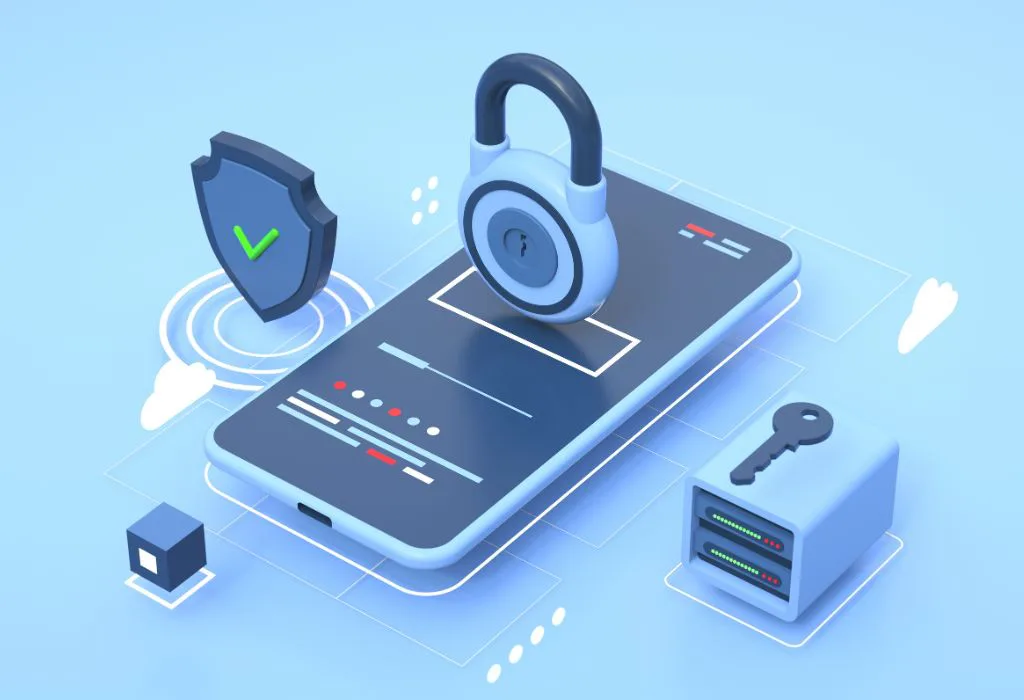Contents
ToggleIn today’s digital age, healthcare organizations are faced with the critical challenge of protecting sensitive patient data. Securing healthcare data is of paramount importance to safeguard patient privacy, maintain trust, and prevent unauthorized access or data breaches. Traditional approaches to data security have proven to be insufficient, calling for innovative solutions to address the evolving threats in the healthcare industry. One such solution that holds great promise is blockchain technology. In this article, we will explore the importance of securing healthcare data and delve into the potential of blockchain as a robust security solution for the future.

Read more: OceanFi revolutionizes Fitness through AI, DeFi and Metaverse integration
Understanding the Importance of Securing Healthcare Data
The healthcare industry handles vast amounts of sensitive data, including personal health records, financial information, and research data. This wealth of information makes healthcare organizations an attractive target for cybercriminals. The risks and challenges associated with healthcare data security are numerous. Unauthorized access to patient data can lead to identity theft, insurance fraud, and compromised patient care. Moreover, data breaches can have severe consequences for both patients and healthcare providers.
Traditional Approaches to Securing Healthcare Data
To mitigate the risks associated with healthcare data, organizations have implemented various security measures. These include access controls and user authentication, encryption and data protection, and network security measures. While these traditional approaches have provided a certain level of protection, they have their limitations. Centralized systems are vulnerable to single points of failure and targeted attacks. Additionally, managing and securing data across multiple entities and systems can be complex and prone to human error.
The Emergence of Blockchain Technology
Blockchain technology, most commonly associated with cryptocurrencies like Bitcoin, has emerged as a potential game-changer in the realm of data security. At its core, blockchain is a decentralized and immutable ledger that records transactions or data in a transparent and tamper-proof manner. Unlike traditional centralized databases, blockchain operates on a distributed network of computers, ensuring data integrity and eliminating the need for intermediaries.

Read more: 8 coins with strong growth potential and market dominance in 2024
Blockchain Solutions for Securing Healthcare Data
Blockchain technology offers several key features that make it a compelling solution for securing healthcare data. Firstly, its immutable and transparent nature ensures that once data is recorded on the blockchain, it cannot be altered or tampered with. This feature enhances data integrity and provides an auditable trail of all transactions. Secondly, blockchain’s decentralized nature eliminates the need for a central authority, reducing the risk of single points of failure and unauthorized access. Lastly, smart contracts, programmable code executed on the blockchain, enable advanced data privacy and consent management.
Benefits of Blockchain in Securing Healthcare Data
Implementing blockchain technology in healthcare data security brings forth numerous benefits. The enhanced data integrity and trust provided by blockchain instill confidence in patients, healthcare providers, and other stakeholders. Improved interoperability and data sharing capabilities enable seamless exchange of information between healthcare organizations, leading to better-informed decision-making and improved patient care. Additionally, streamlined data access and consent management empower patients to have greater control over their personal health information.
Challenges and Considerations
While blockchain technology holds immense promise, there are challenges and considerations that need to be addressed. Scalability and performance remain key concerns, as blockchain networks tend to be slower and less efficient than traditional centralized systems. Regulatory and legal implications surrounding data privacy and ownership need to be carefully navigated. Adoption and integration challenges, including resistance to change and interoperability with existing systems, may hinder widespread adoption of blockchain in healthcare.
Real-world Examples and Use Cases
Blockchain technology has already found applications in various healthcare use cases.Some examples include:
- Electronic Health Records (EHRs): Blockchain can provide a secure and tamper-proof platform for storing and sharing electronic health records. It ensures data integrity, privacy, and interoperability between different healthcare providers.
- Clinical Trials and Research Data: Blockchain can facilitate secure and transparent sharing of clinical trial data, ensuring data authenticity and integrity. It can also enable efficient and trustworthy collaboration between researchers and institutions.
- Supply Chain Management and Drug Traceability: Blockchain can be utilized to track and verify the authenticity and provenance of pharmaceutical products throughout the supply chain. This helps in reducing counterfeit drugs and ensuring patient safety.

Future Trends and Potential Impact
Looking ahead, the integration of blockchain technology with emerging technologies such as artificial intelligence (AI) and the Internet of Things (IoT) holds significant potential. This convergence can enhance the security and efficiency of healthcare data management, enabling real-time data analysis, predictive analytics, and personalized healthcare solutions. Standardization efforts and industry collaboration will play a crucial role in driving the widespread adoption of blockchain in healthcare.
Moreover, empowering patients through the use of blockchain-based personal health records can enable individuals to have greater control over their health data, facilitate data sharing with healthcare providers, and participate in research and clinical trials.
Conclusion
Securing healthcare data is of utmost importance in today’s digital landscape. Traditional approaches to data security have proven to be inadequate, necessitating innovative solutions. Blockchain technology offers a promising avenue for enhancing healthcare data security. Its decentralized, transparent, and tamper-proof nature provides a robust foundation for protecting sensitive patient information, improving interoperability, and empowering patients. However, challenges such as scalability, regulatory compliance, and adoption barriers need to be addressed for wider implementation. As the healthcare industry continues to evolve, embracing blockchain solutions can pave the way for a more secure and patient-centric future.

FAQs (Frequently Asked Questions)
Q: How does blockchain technology enhance data security in healthcare?
A: Blockchain ensures data integrity, immutability, and transparency, making it difficult for unauthorized parties to tamper with or access sensitive healthcare data.
Q: What are the benefits of using blockchain in healthcare data security?
A: Blockchain provides enhanced data integrity, improved data sharing and interoperability, streamlined access and consent management, and increased patient control over personal health information.
Q: What are some real-world use cases of blockchain in healthcare?
A: Blockchain can be used for securing electronic health records (EHRs), sharing clinical trial data, and ensuring the authenticity and traceability of pharmaceutical products in the supply chain.
Q: What challenges are associated with implementing blockchain in healthcare?
A: Challenges include scalability and performance issues, regulatory and legal implications, and adoption and integration challenges with existing healthcare systems.
Q: How can blockchain empower patients in healthcare?
A: Blockchain-based personal health records enable patients to have greater control over their health data, facilitate data sharing with healthcare providers, and participate in research and clinical trials.
Read more: How to Analyze and Improve Your Performance with Crypto Marketing analytics












